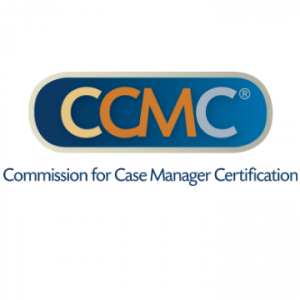Posted on 08/10/2021 - 11:25 AM by CCMC
Case management is defined as a collaborative process that assesses, plans, implements, coordinates, monitors, and evaluates the options and services required to meet the client’s health and human service needs.
One way to improve the process and yourself as a case manager is with the Commission for Case Managers Certification’s (CCMC) board-certified case manager (CCM) credential.
The CCM is the largest, oldest, and most highly valued credential for case managers. Its value has expanded as healthcare evolves into a more patient-centric, coordinated model of care. The CCM is so effective, about 88% of case managers believe that the certification has had a positive impact on their career.
The CCM Overview
Achieving a certification isn’t something unique to case managers. As with any profession, a certification shows that a person has improved their specialized knowledge, skills, and experience.
In the case management world, the CCM is sought after to show competency and contribute to the safety and quality of the practice for consumers and clients case managers interact with.
“It signifies to the public a level of mastery of the specialty, and indeed shows engagement in the lifelong pursuit of learning,” said Vivian Campagna, DNP, RN-BC, CCM and Chief Industry Relations Officer for the CCMC. “The board-certified case manager who has earned the CCM credential is also committed to upholding the highest professional and ethical standards through compliance with the Code of Professional Conduct for Case Managers, the basic objective of which is to protect the public interest.”
One of the lessons that a case manager will learn on their journey to board certificationis becoming an advocate for their clients, employers, and themselves. According to Campagna, advocacy is a priority for board-certified case managers to act in the best interest of all stakeholders to achieve the optimal value and desired outcomes.
Case managers bring different educational and professional backgrounds that help in their certification journey, as those experiences bring a wealth of knowledge. Good case managers can translate these experiences and knowledge into the case management process across many different practice settings.
For newer case managers, the journey to the CCM will help and encourage them to understand the foundational practice of case management. The exam tests five domains: care delivery and reimbursement methods, psychosocial concepts and support systems, quality and outcomes evaluation and measurements, rehabilitation concepts and strategies, and ethical, legal, and practice standards.
“Within these domains are represented the body of case management knowledge and skills that comprise the case manager role,” Campagna said. “For many, this is the starting point to measure the competency of the individual.”
Benefits of a CCM
Due to the current healthcare environment and the spotlight that the Affordable Care Act has put on care coordination, it’s imperative that the healthcare industry has competent case managers ready to lead.
That is where the CCM comes into play. Achieving board certification shows that case managers have the knowledge and experience to serve clients with serious and complex conditions or catastrophic injuries or illnesses.
“We know from recent trend surveys that more than 40% of employers require the CCM credential, so for case managers this could be the tipping point to getting a position,” Campagna said.
Employers acknowledge the value of certification and often look for case managers that hold the CCM credential, for it is the gold standard in case management certification.
As a bonus incentive, in some cases, board-certified case managers are paid at higher rates than non-certified case managers. A majority of CCMs responding to a recent survey indicate they earn more than $80,000 annually while more than half of the CCMs in executive positions that responded earn more than $100,000 annually, the same as more than a third of CCMs in management.
Case managers that have achieved board-certification have stated to the CCMC that it has helped them both personally and professionally to showcase their expertise and competence. And, according to Campagna, this has been validated by the growing number of case managers that apply for and achieve board certification, as well as the numbers of case managers that recertify.
To find out more about becoming a board-certified case manager or to renew your certification, click here!

